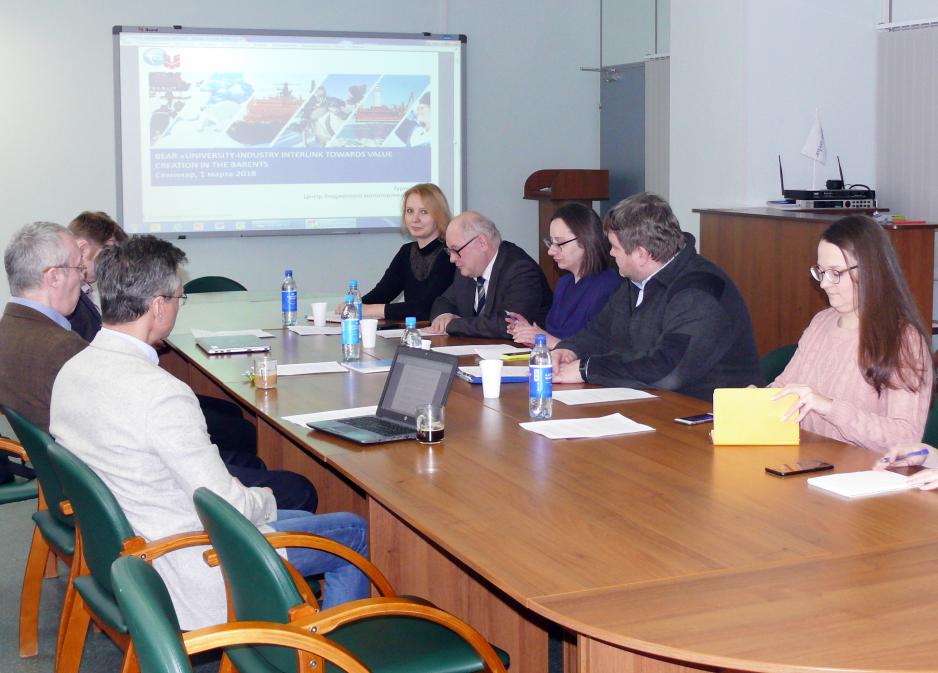Norwegian and Russian stakeholders share the same visions in the Barents region

Stakeholders in the Norwegian and Russian part of the Barents region by and large have common visions for Arctic development. They are also highly aware of - and demonstrate - a high degree of coherence on several important issues.
These are some of the findings in a new report aiming find answers to what kind of information that is needed for planning and implementation of development projects in the Barents region.
The "Stakeholder Monitoring Report" is developed by the partners of the UNIIN BARENTS - "University-industry interlink towards value creation in the Barents region" project, supported by the Norwegian Barents Secretariat.
The project survey was conducted in the spring of 2018 and is based on questioning 43 organizations from Northern Norway and North-West Russia.
The main purpose of the survey was to identify the stakeholder's needs in analytical information for planning and implementation of the Arctic development projects in the Barets region.
Key drivers: Infrastructure and logistics
The study reveals that the stakeholders perceive infrastructure and logistics to be the clear drivers of the economy in the Barents region, and they are considered much more important than oil and gas projects, tourism and small and medium-sized enterprises (SME's). Human resources and environmental protection were ranked as the second-most relevant sectors.
The answers from the stakeholders also indicate that both commercial and non-commercial organizations in Norway and Russia are mostly interested in participation in innovation projects associated with development of new technologies.
The study also implies that companies and organizations are highly ready to contribute to Arctic development projects with their knowledge, competence, informational as well as human resources.
On the other side, the study shows that there are much less opportunities and readiness when it comes to material resources, such as investments and technical equipment, since extra costs for them might be more visible and considerable when comparing to non-material resources.
Need to get information
The answers from the various organizations shows that there is still a great need for getting information about existing and planned Arctic projects.
More spesifically, the respondents say there are three types of information that are highly needed on projects being implemented: Information on potential investors, demand for manpower, and on what kind of qualified specialists are required.
Such information can provide a practical understanding for stakeholders to simple questions like; "What is the project? Who will invest, and how may the company contribute with its human resources?"
The partners of the UNIIN Barents and Business Index North (BIN) projects intend to develop tools and solutions for providing stakeholders with the information required.
To secure stakeholders' involvement with Arctic projects, the project partners provide recommendations on everything from looking into opportunities for cooperation on innovation across sectors and countries' borders in the Barents region, to more cooperation with the university sector and R&D companies in order to develop analytical tools together.
Will develop an online platform
"For example, consider joining an open internet-platfom containing information on companies, entrepreneurs and investmens projects in the Barents region", the project partners write in their report, adding that this is something that will be developed by UNIIN Barents and BIN project partners in cooperation with business.
The Russian State Hydrometerological University (St.Petersburg, Russia), Petrozavodsk State University, Akvaplan-niva (Tromsø, Norway), the International Center of Arctic Cooperation (Murmansk, Russia) and the High North Center of Business and Governance at Nord University Business School (Bodø, Norway) are among the partner organizations in UNIIN Barents.

